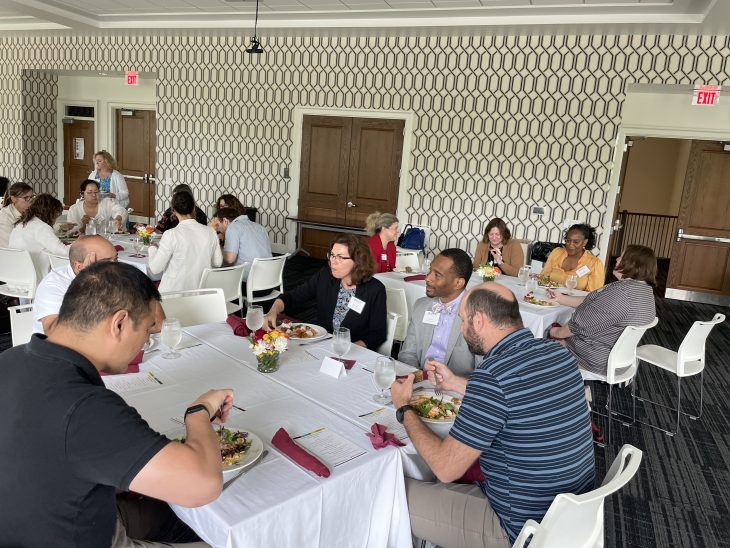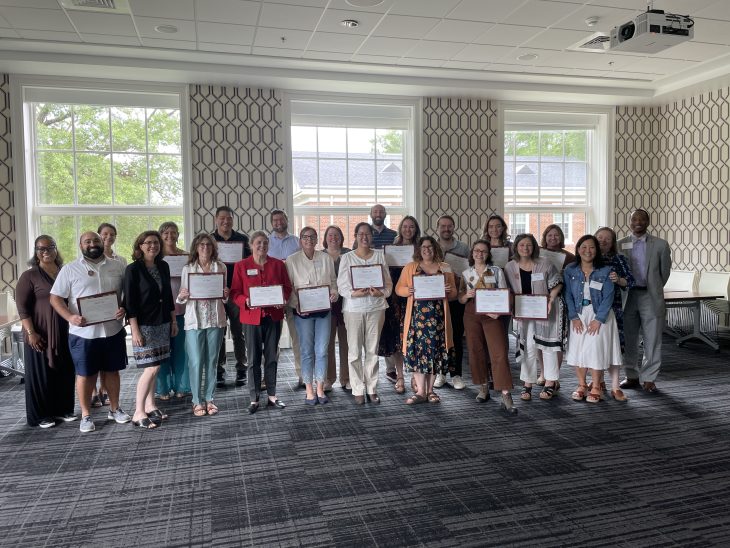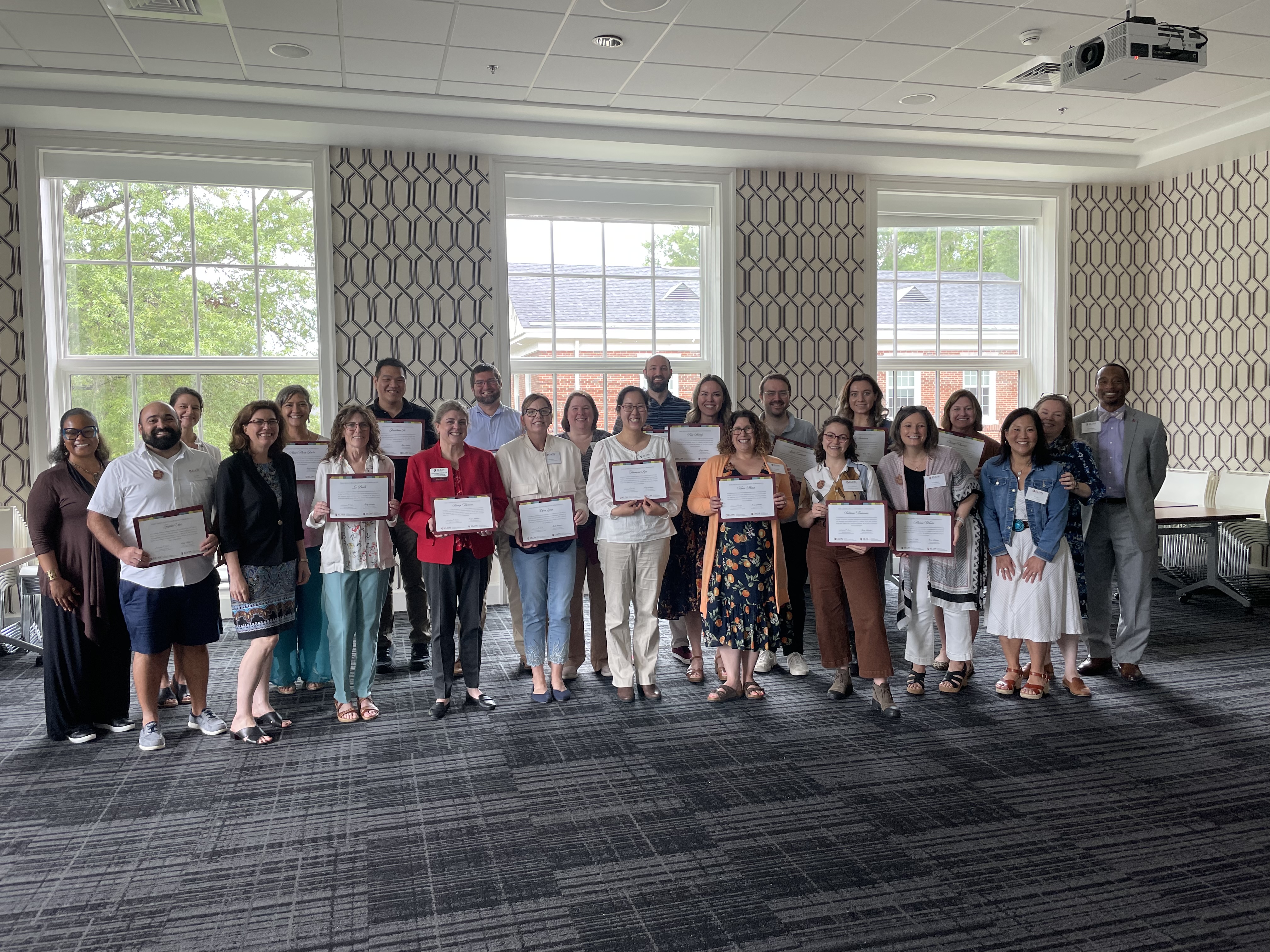Elon has a new program for faculty and staff to learn more about diversity, equity and inclusion in the classroom.
A first cohort of 27 Elon faculty members has been awarded the university’s first Certificates of Inclusive Teaching through a pilot program developed by the Center for the Advancement of Teaching and Learning (CATL) and the Office of Inclusive Excellence Education and Development (OIEED).
The program offers a semester-long experience and an opportunity for faculty and staff to engage in a learning community focused on diversity, equity and inclusion in the classroom. Recipients of the certificate gain common language to articulate teaching practices and to support developing a portfolio of tools for the classroom and beyond.
The program was a collaborative effort between OIEED and CATL colleagues including Jill McSweeney, assistant director of CATL; Jen Uno, associate director of CATL and Olivia Choplin, associate director of CATL. The initiative was also supported by Provost Rebecca Kohn and Vice President and Associate Provost for Inclusive Excellence Randy Williams.
“I think overall, for this first round, the program was a big success. It seems like people really benefited from the program and learning about diversity, equity and inclusion in the classroom,” said Uno, an associate professor of biology.
The program was created using an online platform to create various courses, specifically contextualized to Elon. For the pilot, there was the option of virtual and in person. Some teaching faculty did the program virtually whenever they could, while others met in person weekly as they were completing the course online.
There was a call out for faculty and staff interested in signing up and enrolling in the certificate program which filled up in 24 hours.
“We had faculty from all four colleges. Probably a little more from Elon College, the College of Arts and Sciences,” said Uno.
“At its heart, this program is about improving the way we can connect with the widest range of students,” said Jonathan Su, assistant professor of engineering, on why other faculty and staff should consider participating in receiving the Certificate of Inclusive Teaching. “We all have blind spots and assumptions that come from our backgrounds, and thinking about these things can only help us.”
The first round of the program touched on what diversity, equity and inclusion feels like in the classroom.
“For a lot of faculty, it is an ongoing process and something that you cannot just check a box and say ‘I’m done.’ I think it takes a lot of personal reflection on identity,” said Uno.

The program is also a chance to study some of the diversity, equity and inclusion efforts at Elon and provides the opportunity to see what progress is being made. It allows participants to reflect on past teaching practices and challenge themselves for the next time with a more inclusive lens.
“One of the things I’ve been doing more and more is trying to make sure that everyone understands a lot of the assumptions that we make that aren’t explicitly stated,” Su said.
The cohort gathered for a celebration following the completion of the courses. “Your participation in this certificate program was another stepping stone in your journey to interrogate and enhance your critical consciousness as educators,” said Carla Fullwood, director of inclusive excellence education and development. “I hope you continue this journey and know that you have a support network in each other and with colleagues in CATL and OIEED.”

Upon completion of the program, everyone received certificates and a small acorn pin during an event on May 16.
“Beyond congratulating the participants and the organizers, I acknowledged the value of faculty working together across disciplines to expand their perspectives and teaching strategies to create greater inclusion,” said Williams.
Another cohort is expected to launch in the fall 2024 semester.



